第39章 CHAPTER X(5)
"Beware of marrying an Egoist, my dear!" He bowed gallantly; and so blindly fatuous did he appear to her, that she could hardly believe him guilty of uttering the words she had heard from him, and kept her eyes on him vacantly till she came to a sudden full stop in the thoughts directing her gaze. She looked at Vernon, she looked at her father, and at the ladies Eleanor and Isabel.
None of them saw the man in the word, none noticed the word; yet this word was her medical herb, her illuminating lamp, the key of him (and, alas, but she thought it by feeling her need of one), the advocate pleading in apology for her. Egoist! She beheld him--unfortunate, selfdesignated man that he was!--in his good qualities as well as bad under the implacable lamp, and his good were drenched in his first person singular. His generosity roared of I louder than the rest. Conceive him at the age of Dr. Corney's hero: "Pray, save my wife for me. I shall positively have to get another if I lose her, and one who may not love me half so well, or understand the peculiarities of my character and appreciate my attitudes." He was in his thirty-second year, therefore a young man, strong and healthy, yet his garrulous return to his principal theme, his emphasis on I and me, lent him the seeming of an old man spotted with decaying youth.
"Beware of marrying an Egoist."
Would he help her to escape? The idea of the scene ensuing upon her petition for release, and the being dragged round the walls of his egoism, and having her head knocked against the corners, alarmed her with sensations of sickness.
There was the example of Constantia. But that desperate young lady had been assisted by a gallant, loving gentleman; she had met a Captain Oxford.
Clara brooded on those two until they seemed heroic. She questioned herself. Could she . . .? were one to come? She shut her eyes in languor, leaning the wrong way of her wishes, yet unable to say No.
Sir Willoughby had positively said beware! Marrying him would be a deed committed in spite of his express warning. She went so far as to conceive him subsequently saying: "I warned you." She conceived the state of marriage with him as that of a woman tied not to a man of heart, but to an obelisk lettered all over with hieroglyphics, and everlastingly hearing him expound them, relishing renewing his lectures on them.
Full surely this immovable stone-man would not release her. This petrifaction of egoism would from amazedly to austerely refuse the petition. His pride would debar him from understanding her desire to be released. And if she resolved on it, without doing it straightway in Constantia's manner, the miserable bewilderment of her father, for whom such a complication would be a tragic dilemma, had to be thought of. Her father, with all his tenderness for his child, would make a stand on the point of honour; though certain to yield to her, he would be distressed in a tempest of worry; and Dr. Middleton thus afflicted threw up his arms, he shunned books, shunned speech, and resembled a castaway on the ocean, with nothing between himself and his calamity. As for the world, it would be barking at her heels. She might call the man she wrenched her hand from, Egoist; jilt, the world would call her. She dwelt bitterly on her agreement with Sir Willoughby regarding the world, laying it to his charge that her garden had become a place of nettles, her horizon an unlighted fourth side of a square.
Clara passed from person to person visiting the Hall. There was universal, and as she was compelled to see, honest admiration of the host. Not a soul had a suspicion of his cloaked nature. Her agony of hypocrisy in accepting their compliments as the bride of Sir Willoughby Patterne was poorly moderated by contempt of them for their infatuation. She tried to cheat herself with the thought that they were right and that she was the foolish and wicked inconstant. In her anxiety to strangle the rebelliousness which had been communicated from her mind to her blood, and was present with her whether her mind was in action or not, she encouraged the ladies Eleanor and Isabel to magnify the fictitious man of their idolatry, hoping that she might enter into them imaginatively, that she might to some degree subdue herself to the necessity of her position. If she partly succeeded in stupefying her antagonism, five minutes of him undid the work.
He requested her to wear the Patterne pearls for a dinner-party of grand ladies, telling her that he would commission Miss Isabel to take them to her. Clara begged leave to decline them, on the plea of having no right to wear them. He laughed at her modish modesty.
"But really it might almost be classed with affectation," said he.
"I give you the right. Virtually you are my wife."
"No."
"Before heaven?"
"No. We are not married."
"As my betrothed, will you wear them, to please me?"
"I would rather not. I cannot wear borrowed jewels. These I cannot wear. Forgive me, I cannot. And, Willoughby," she said, scorning herself for want of fortitude in not keeping to the simply blunt provocative refusal, "does one not look like a victim decked for the sacrifice?--the garlanded heifer you see on Greek vases, in that array of jewellery?"